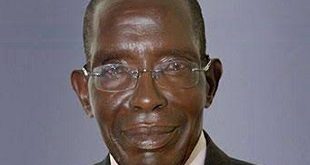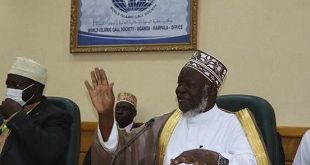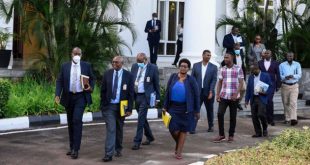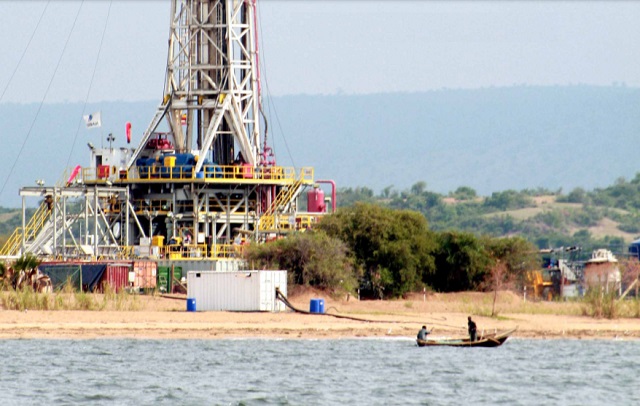
Government intends to secure finances from the domestic market for the oil pipeline project
Kampala, Uganda | THE INDEPENDENT | High hurdles still stand in the way to the Final Investment Decision that will see the country’s first oil come out of the ground for the crude to be transported to the sea with some refinery to be done in the country, and the latest challenge is in the national legislature.
Parliament’s Budget Committee yesterday questioned government’s request for a 487 Billion Shillings loan to finance Uganda’s initial equity shares and historical costs for the East African Crude Oil Pipeline (EACOP) project without adequate documentation.
The committee interfaced with the State Minister of Finance for Planning David Bahati who had appeared to defend the loan request. This was the second day the Minister was appearing before a committee of Parliament following his Thursday interface with the House’s National Economy Committee on the same matter.
According to the loan brief to parliament accessed by Uganda Radio Network- URN, government intends to secure the finances from the domestic market for the oil pipeline project. The project is under UNOC which was established to manage the country’s commercial aspects of petroleum activities and the participating interests of the state in the agreements.

The 1,445 km long heated pipeline will transport crude oil from the Tilenga and Kingfisher projects to the delivery point in Kabaale, Hoima and to the Indian Ocean port of Tanga in Tanzania.
Uganda has a 15% shareholding interest in the East African Crude Oil Project while the rest of the shares are owned by Total with 72%, government of Tanzania through the Tanzania Petroleum Development Corporation 5% and China National Oil Company 8%.
Part of the document before parliament reads: “Negotiations for the Final Investment Decision (FID) for EACOP are in advanced stages. The EACOP Bill has been drafted and is under discussion between government and the oil companies before it is eventually presented to Parliament. Conclusion of these negotiations and the Bill will pave way for FID and thus enabling construction to start.”
Government says that before construction commences, Uganda is required to provide 487 billion Shillings in the current financial year 2020/2021 for the Final Investment Decision-FID for East African Crude Oil Pipeline expected in March 2021.
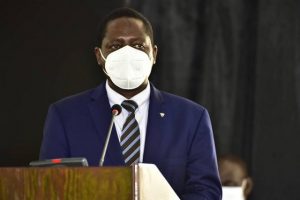
According to Minister Bahati, it is not possible to mobilize tax revenues or mobilize external resources which follow specific processes given the short timeline and that this is the reason government is seeking borrowing from the domestic market.
Earlier undertakings in the project including the signing of the Inter-Government Agreement for the Crude Export Pipeline in May 2017, the Front-End Engineering Designs (FEED) and Environmental Social Impact Assessment (ESIA) were conducted and financed by Total on behalf of the government. These constitute historical costs amounting to US Dollars 60 million but are to be reimbursed by the government upon signing of the shareholders agreement and Final Investment Decision.
However, MPs sitting on the Budget Committee insisted that the Ministry of Finance tables all documentation regarding the oil project and also wondered whether the National Economy Committee had already approved the loan which is a requirement for them to appropriate the funds.
Richard Othieno, the West Budama North MP said that it was against Parliament’s rules of procedure to appropriate money through a supplementary budget in anticipation.
“You want us to appropriate money…has it already been approved by Parliament? What will happen when Parliament does not approve it?” he asked.
Othieno further demanded for documentation regarding the oil deal before any more discussions are held.
James Kakooza, the Kabula County MP also questioned the procedure that the Minister was using to have the funds approved.
Muhammad Muwanga Kivumbi, the Butambala County MP questioned why officials were hesitant to present the required documentations to the committee.
“The last time we met the Minister, we requested for documents. They assured us that they would get them today, but even today, they came back without anything,” said Kivumbi.
Dokolo Woman MP Cecilia Ogwal also demanded accountability for earlier funds provided by parliament totaling 46 billion Shillings to UNOC.
Patrick Isiagi, the Budget Committee vice chairperson wondered whether Total’s claim to the historical cost of US Dollars 60 million had been audited and verified by the Auditor General.
Emmanuel Mugagga, UNOC’s Chief Financial Officer told the committee that the historical cost claims were still being audited.
He explained that there was a Memorandum of Understanding (MoU) that was signed between the Uganda Government and that of Tanzania which gave Total the mandate to invest and then costs refunded.
This prompted legislators to demand that the historical cost claims be audited by the Auditor General before they are approved.
Bahati said that government was willing to avail documentation regarding the project and appealed to MPs to attend a Monday scheduled seminar about the matter from where they can get more details.
*****
URN
 The Independent Uganda: You get the Truth we Pay the Price
The Independent Uganda: You get the Truth we Pay the Price
